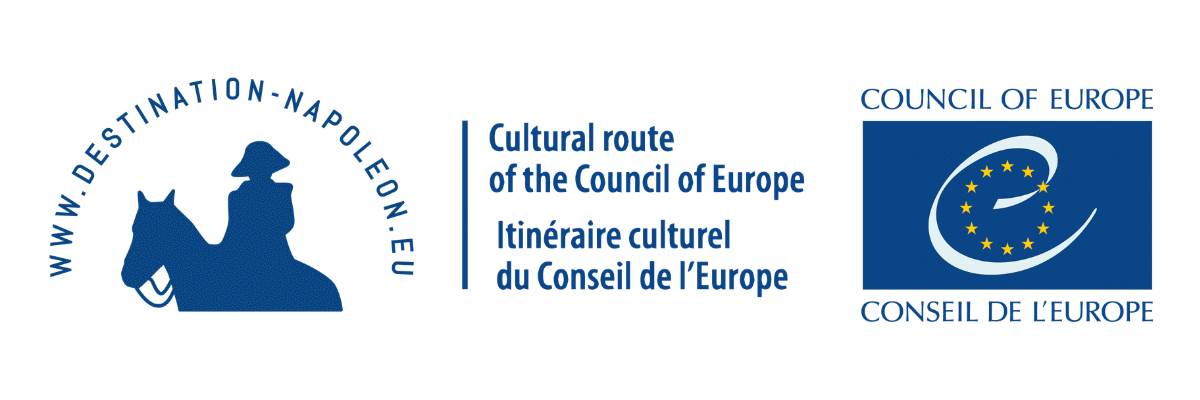
From 11 to 13 June 2025, the 12th Council of Europe Cultural Routes Training Academy was held in Torres Vedras, Portugal, a member of the European Federation of Napoleonic Cities - Destination Napoléon.
Organised by European Institute of Cultural Routes - Council of Europe, in collaboration with Destination Napoléon, Iter Vitis and local partners, the Training Academy provided a platform for exploring cooperation at all levels: thematic, territorial, institutional and human.
The event brought together representatives of the Council of Europe's Certified Cultural Routes to discuss this year's theme: «Cooperation and Cultural Routes». Over three days, participants took part in workshops, site visits and themed sessions organised in three areas: Torres Vedras, Arruda dos Vinhos and Vila Franca de Xira. The programme showed how Cultural Routes are evolving beyond isolated initiatives to become interconnected networks capable of influencing political dialogue, project development, academic research and cultural diplomacy.
Discussions focused on emerging priorities common to the Cultural Routes, including :
- environmental sustainability and climate resilience
- creative tourism and youth involvement
- digital storytelling and innovation
- the local food and wine culture
- cultural heritage as a lever for urban regeneration
These themes form a common basis for joint actions and long-term partnerships within the Cultural Routes programme.
Cooperation is first and foremost about people: an academy centred on people.
Beyond the institutional exchanges, the Training Academy was distinguished by its strong community spirit. Informal exchanges over coffee, a glass of wine and shared visits were just as important as the formal sessions. These human bonds are the foundation of trust, collaboration and lasting commitment between the Cultural Routes.
For Destination Napoléon, the Training Academy has reaffirmed the relevance of inter-itinerary cooperation both as a strategy and as a value. As co-organiser and partner of the MED-Routes project, we are committed to extending this spirit of cooperation in our future initiatives, linking heritage, innovation and sustainability on a European scale.
MED-Routes: putting sustainable tourism into practice
On 13 June, in Vila Franca de Xira, a dedicated session was devoted to the MED-Routes Interreg Euro-MED project. The round table entitled «Challenges and opportunities for Cultural Routes» highlighted the collaborative work of Destination Napoléon and the European Ceramics Route, two of the four Cultural Routes taking part in the project.
Benedetta Diamanti (European Ceramic Route) presented the methodology and results of the MED-Routes project, in particular the development of eco-itineraries designed to support low-impact tourism rooted in local heritage. These routes have been co-constructed with local stakeholders according to a common set of sustainability criteria, as explained by Júlia Reis (Municipality of Vila Franca de Xira). Such itineraries have been developed and implemented in Vila Franca de Xira as part of the Rota Histórica das Linhas de Torres, a member of Destination Napoléon. In the afternoon, participants had the opportunity to try them out in practice and give their feedback. Denise de Roux (Destination Napoléon) concluded the session by stressing the importance of ensuring that the project's methodology can be replicated by other Cultural Routes well beyond the project's official timetable.
The session confirmed that MED-Routes is not just a cooperation project, but also a reference model showing how Cultural Routes can develop joint solutions to common sustainability objectives, while strengthening their impact at local level.
Acknowledgements
This year's Academy would not have been possible without the contributions and hospitality of :
- the municipalities of Torres Vedras, Arruda dos Vinhos and Vila Franca de Xira
- Association of Portuguese Wine Municipalities (AMPV)
- the Rota Histórica das Linhas de Torres
- the Portuguese Ministry of Culture and the Portuguese Institute for Cultural Heritage
- the Route des Cafés Historiques
- the University of Lisbon and other academic partners
- and the representatives of the Itinéraires culturels, who were actively involved throughout the three days.
Our sincere thanks go to all the speakers and participants from over 15 countries, whose professionalism and generosity have given this Training Academy its full dimension. We look forward to seeing you again in Pécs, Hungary, for the next edition, organised by the Roman Emperors' Route and the Danube Wine Route !
